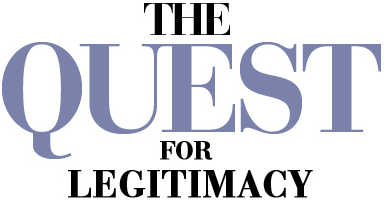Ever noticed how a centuries-old family portrait can feel like a time capsule? Those stern faces, resolute postures, and glimmers of familial resemblance carry the weight of legacy. They whisper tales of tradition and expectations that echo down generations.
Now imagine being born into one such prominent family, where your birthright is not just wealth or fame but also an intricate tapestry woven with generational norms. It’s both empowering yet daunting; it lets you stand on giants’ shoulders while their shadows loom large over your personal aspirations.
The dance between individuality and legacy forms the heartbeat of our narrative here – navigating power structures, seeking guidance outside kinship circles, exploring self-identity amid expectations…
Get ready for an intriguing adventure! However, remember there are no easy solutions in this maze we call ‘Generational Differences.’ Buckle up as we decode this mystery together.
The Weight of Legacy in Prominent Families

For those born into a family with an established legacy, the weight can feel overwhelming. The expectations to carry on that legacy are not just from the immediate family but also from society at large.
The Role of Tradition in Shaping Identity
Rites of passage play a significant role within prominent families, shaping one’s identity and position. It’s akin to walking a tightrope – balancing personal aspirations against familial obligations.
These rites, often steeped in tradition, serve as both privilege and responsibility. They establish your place within the lineage while underscoring what you stand to inherit – and what you’re expected to preserve for future generations.
The Pressure to Uphold Family Traditions
A recurring theme among younger members is this internal tug-of-war between wanting to honor their heritage and desiring something different for themselves.
This struggle manifests most tangibly when it comes time for them to take up positions or roles historically held by older family members. Their decisions have implications beyond personal fulfillment; they bear upon how faithfully traditions get upheld or transformed over time.
Navigating Power Structures in Prominent Families
The intricate dance of power within a family is never more complex than when it’s happening on the grand stage of a prominent lineage. It’s akin to playing chess while balancing on a tightrope; every move has implications and missteps can have far-reaching consequences.
The Transition of Power and Influence
In families steeped in custom, a tacit ranking usually persists from one generation to the next. Psychologists liken this dynamic to an ongoing tug-of-war between older and younger generations, with each vying for control over decisions big and small.
This battle isn’t merely about who gets the last word at Sunday dinner or who controls the family business. It’s also about identity – defining oneself outside or within these power structures plays into how younger members perceive their place not only in their family but also in society.
Finding ways through these delicate dynamics requires finesse, patience, understanding—and sometimes even help from external mentors or guides. Research shows this guidance aids young individuals as they navigate their own path toward legitimacy amid familial expectations.
Seeking Guidance Outside Family Circles
One of the most potent ways to reconcile personal aspirations with family expectations is through guidance from outside our familial circles. These mentors can offer a fresh perspective, helping us see possibilities we may have overlooked due to our close proximity.
This idea was brilliantly explored by psychologist Carl Jung in his work “Archetypes and the Collective Unconscious”. He suggested that sometimes, it takes an outsider’s view for us to truly understand ourselves and what we need. The same principle applies when seeking legitimacy within prominent families.
Balancing Personal Aspirations with Family Expectations
The struggle between fulfilling personal goals and living up to family standards is as old as humanity itself. This delicate balance requires wisdom and courage, but more importantly – perspective.
An external mentor can help illuminate this path by providing unbiased advice free from generational prejudices or preconceptions. They become instrumental in assisting individuals to chart their unique journey towards self-discovery without completely severing ties with their heritage.
The Journey of Self-Discovery and Personal Growth

Let’s embark on a journey, not to an exotic location but within ourselves. The quest for legitimacy in prominent families is often a path toward self-discovery and personal growth. Diving into the unknown can be intimidating, but as we learn to maneuver through it, our real capabilities become evident.
Navigating generational differences in such families may seem like traversing through a dense forest with no compass. But this struggle isn’t just about survival; it’s also about understanding who you are beyond your family name.
In our quest for legitimacy, each challenge faced becomes a step toward self-discovery. We start recognizing our individual desires separate from familial expectations and understand that carving out our own legacy doesn’t necessarily mean discarding the old one.
This voyage towards finding one’s voice amidst powerful ancestors could feel overwhelming at times but remember – even mighty oaks were once tiny acorns. So buckle up. This ride might get bumpy before it gets comfortable.
Balancing Individuality and Legacy
Striking a balance between personal aspirations and the expectations of one’s lineage is akin to walking a tightrope. It’s difficult, yet a fundamental part of maturing in well-known households.
In these households, there often exists an intense push-and-pull dynamic. The family legacy can feel like a colossal shadow that stifles individuality while fostering the sense of duty to uphold tradition. This constant juggling act between ‘self’ and ‘family’ can sometimes lead to friction within generations.
The Quest for Legitimacy
It starts with understanding what legitimacy means. In this context, legitimacy is more than just being recognized as part of the family; it involves carving out your unique path while respecting ancestral roots.
This journey towards legitimacy doesn’t come without its share of struggles. But amidst those challenges lie opportunities for growth—opportunities where young individuals can harness their strengths, passions, and dreams even when they diverge from familial norms or traditions.
Ultimately, finding equilibrium requires courage—to follow one’s heart despite potential backlash—and wisdom—to appreciate how our past shapes us without letting it dictate our future paths completely.
Conclusion
Generational differences, they’re complex and intricate, aren’t they? We’ve journeyed through the halls of prominent families together.
We’ve explored the weight of legacy. We’ve seen how tradition shapes identity and wrestled with upholding family expectations while honoring personal desires.
We’ve navigated delicate power structures and experienced transitions of influence that often spark a tug-of-war between generations. Yet, we also found solace in guidance from outside our circles – mentors who help balance those aspirations with familial demands.
Remember: It’s this quest for legitimacy that fosters self-discovery and growth. Embrace it! The dance between individuality and legacy is not just a battle but an enriching symphony if you let it be so!
Do you feel called to explore greater purpose, identity, and personal contribution as a member of a storied family? The Quest for Legitimacy is for you. Order your copy here and start the quest.

